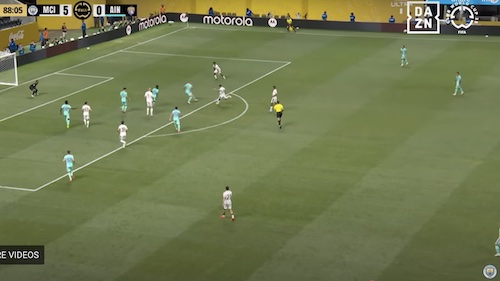This question has been raised by a lot of people who study football. It’s interesting and mysterious, but when did football start? There is a lot of evidence that people in the past played some kind of football. The balls were made of linen or animal intestines, and they were also found in tombs in Ancient Egypt and Ancient China. Leather balls filled with feathers were also found in Ancient China. English football didn’t start to look like it does now until the 19th century when rules were put in place.
Betting Shops Modernized
1980s gambling was on the rise, and this was because betting shops could have TVs, seats, and other things.
The story of football betting is also very interesting. When it comes to betting on sports, we’ve given you a timeline above. Keep reading for a fascinating look at how betting on sports has changed over time, from gambling on horse races to online betting sites that most of us use today.
The Origin of Football Betting
There isn’t a history of football betting that is perfect. When did football betting start? That’s as good a question as to when the sport began. It’s safe to say that betting was going on at some point in the history of the sport. It was also illegal before the 1960s to bet on football. People did it on the street or in criminal safe houses.
The Football Pools
People like Littlewoods were among the first to offer football pool betting outside of Old Trafford in 1923 when the first games were played. Pools were very different from how we bet now. There were a lot of different ways to score. One of the most popular was giving points for each home win, draw, and away win that was correctly predicted.
People could play in the weekly pools, but that was the only choice. These were first made by Littlewoods in 1923, and they were a big hit. They still exist today, but they are very different from the football betting online that most people know and love, which is done through pools. Points-based scoring: Punters got points based on how close their guesses of up to 12 games’ scores were to what happened in real life.
The early 20th century also saw some of the UK’s biggest bookmakers start their own businesses, like Coral and William Hill. William Hill and Coral came after Ladbrokes, which opened in 1902. At the time, they were mostly focused on horse and dog races. It would have been shady to bet on football outside of the pools at this time. Punters would have had to bet with criminal gangs.
The Rise of Football Betting
All of this would soon change, though. People started gambling after the 1960 Gambling Act made it legal. The next year, betting shops opened up all over the country. Then, football fans could legally bet on football in a lot of different ways, not just the pool bets. A big moment in the history of English football betting and the history of betting shops. If one wishes to start betting on football, it is recommended to conduct some research in order to come across a list of the best sportsbooks, we highly recommended turning to the in-depth comparison of well-known sports betting sites, done by the top experts at Thesprtsdaily, providing useful information and reviews.
Betting and Gaming Act 1960
A law passed in 1960 made it legal for people in the UK to play gambling. There were betting shops in May 1961, which made it easier for people to bet on the sport outside of their own groups. From this point on, there were a lot of betting shops all over the country. Some took a while to catch on, though.
It was, of course, only possible in betting shops, which were not very nice places to be. Politicians, on the other hand, wanted betting shops to be as dark as possible, with blacked-out windows and no signs that could be seen by people who might want to bet. There were a lot of things going on, and gambling was still illegal up until recently. This meant that football gambling still had a seedy feel to it in the 1960s, 70, and 80s.
Stepping out of the Shadows
Football betting started to come out of the shadows and become more popular in the 1990s because of the more attention football was getting. This made the market more accessible to a lot of new customers. When Sky Sports bought the rights to show the Premier League in 1992, it was a big deal because they showed a lot of games each weekend. If a match had to be shown on TV for people to bet on it, then more games were shown so that more games could be bet on.
Sky Sports Buy the Premier League Rights for the First Time
Sky Sports bought the rights to show Premier League games for the first time back in 1992. During this time, football was seen by more people than ever before. It also led to the first form of in-play betting, because bettors could bet on a TV game while it was going on. This was a big change in how we bet on football. Booksellers, on the other hand, came out of the shadows a little. They had more and more marketing material for football bets on hand at stores, and they looked brighter and cozier as they did so. It was also made during this time. They took bets from customers while a game was being shown on TV.
This was the precursor to what we now call “in-play or live betting,” and it first came about in the 1990s when it was still done on paper. It was mostly done on paper for most of the decade, though. In the end, that all changed.
The Birth of the Online Operators
It was a big change when the internet came out at the end of the 1990s and then spread all over the world. They all run entirely online. A whole new world of bet types suddenly opened up to people who like to bet on football. Suddenly, things that seemed impossible just a few years ago, like bets on corner kicks or yellow cards, were available to anyone with an internet connection.
Betting Tax Abolished and Minimum Trebles Rule Dropped
In 2001 the betting tax was abolished. The rules around gambling on the sport specifically are also further relaxed, with the ‘minimum trebles’ rule dropped in 2002. Before, if a game was not currently playing when you made a bet, it would have to be bracketed alongside two other selections. Punters can now bet on single matches rather than the minimum of 3 as before.
There were a few other key developments alongside the birth of the internet that really enabled online operators to flourish. The betting tax was abolished in 2002, so punters could gamble tax-free, with the tax instead moved to the bookies’ gross profits. The minimum trebles rule was also abolished, which meant that single bets could be placed on any match and bet type.















